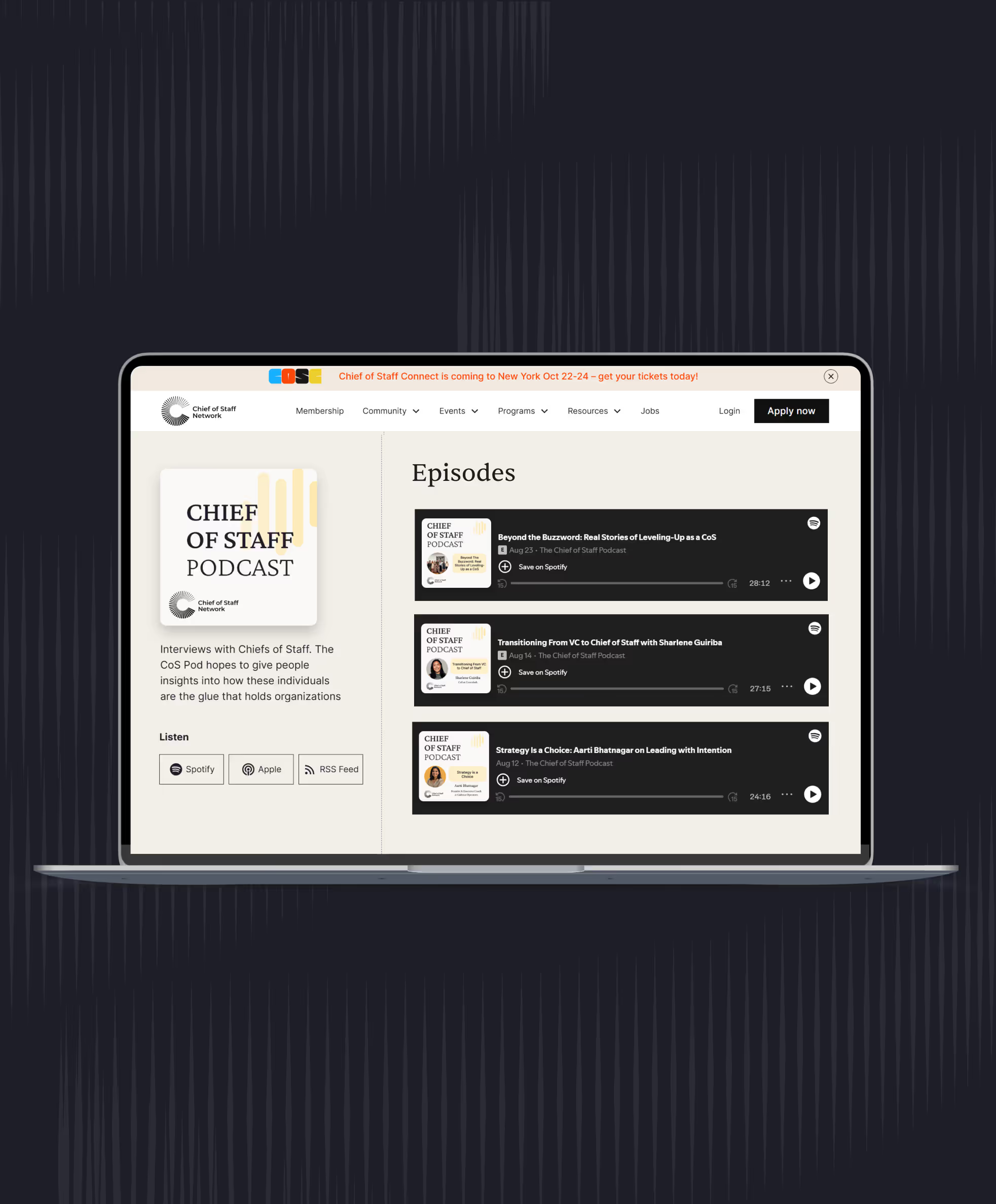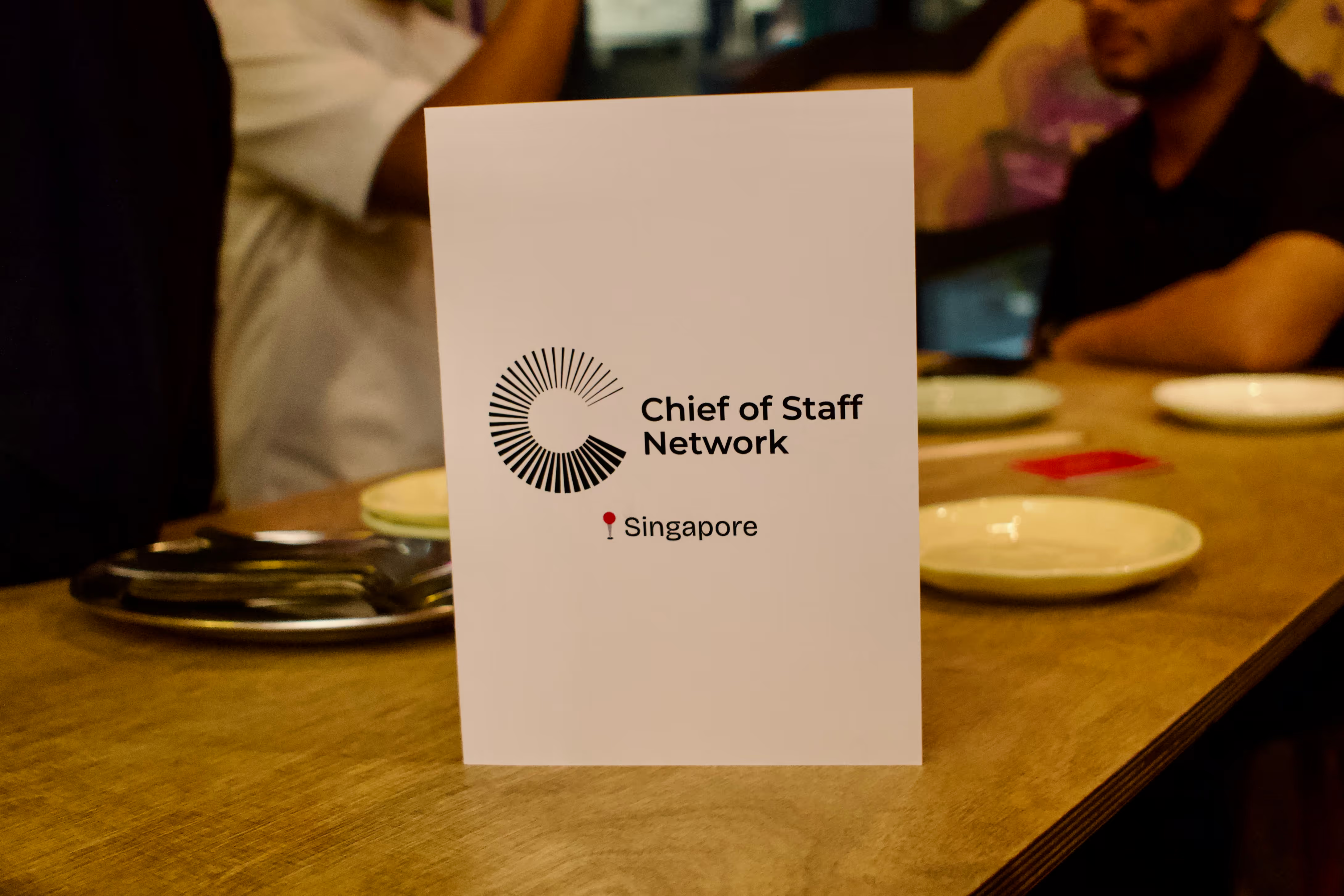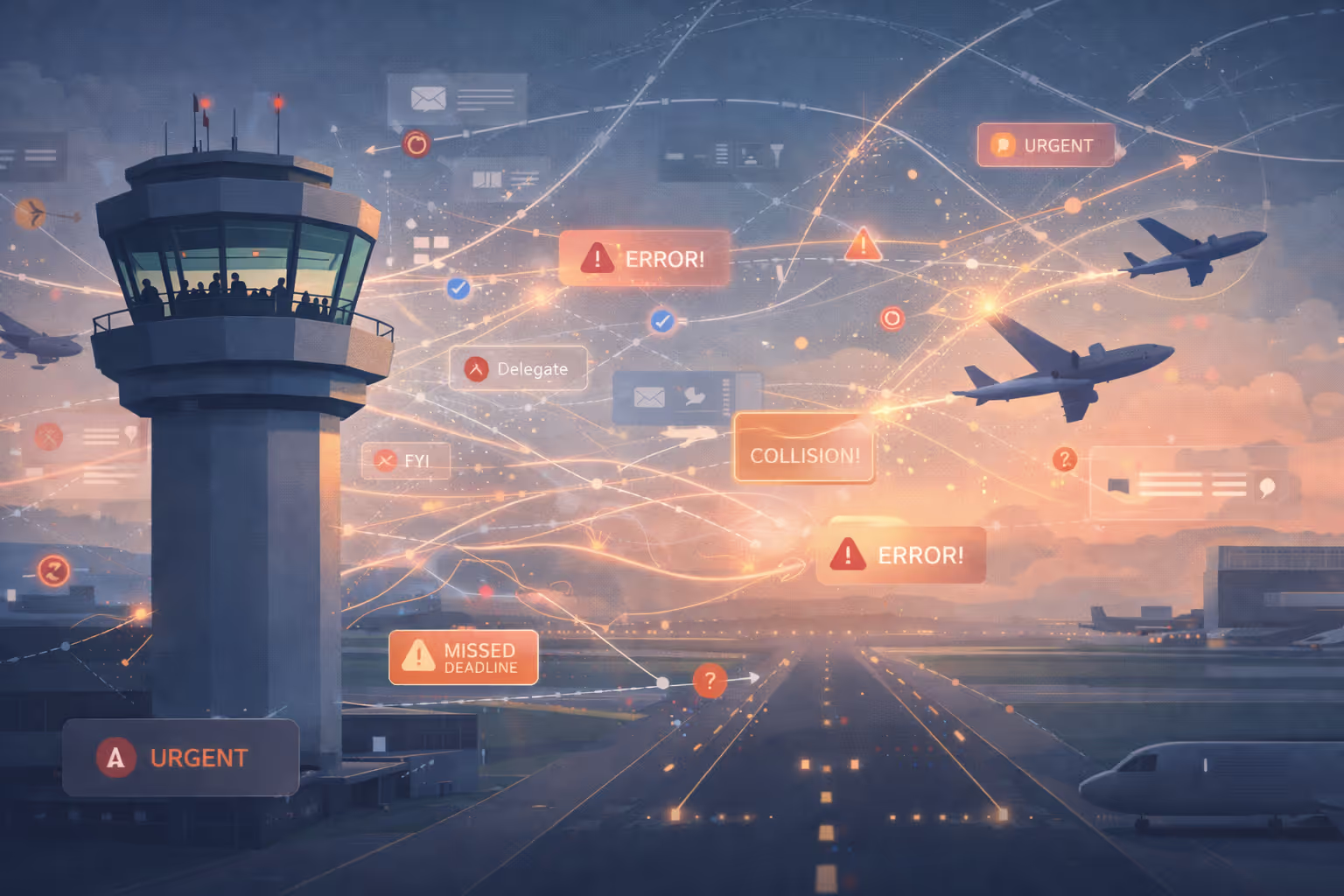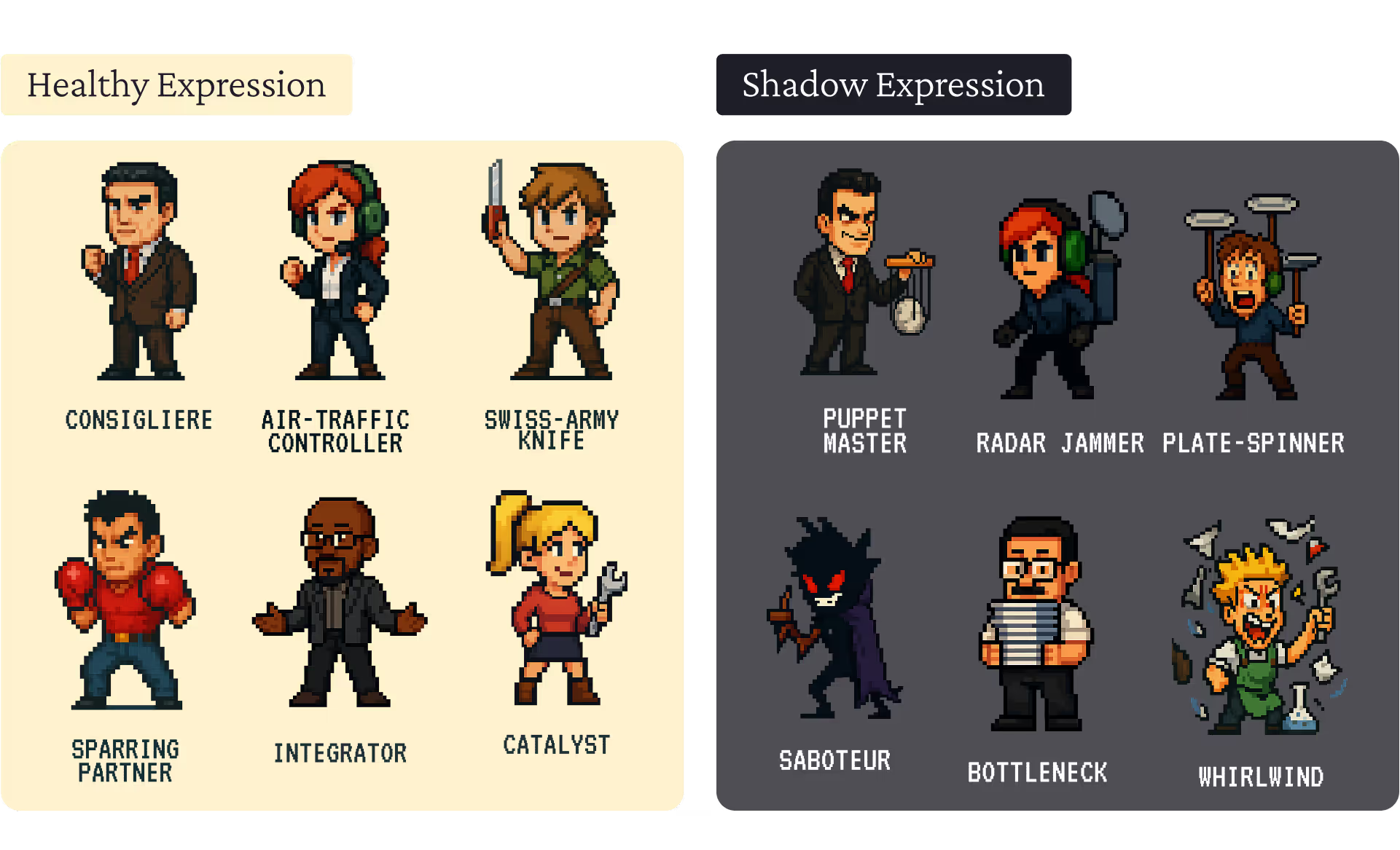If you're an ambitious generalist, this is your moment. But the window is closing faster than most people realize.
AI is reshaping org charts right now. In 84% of companies testing or rolling out AI tools, the Chief of Staff role sits at a critical inflection point. You can evolve into an AI-native strategic operator, or you can fade into irrelevance as execution becomes the domain of AI agents.
The traditional Executive Assistant is already gone. Scheduling, inbox management, meeting notes are all automated or soon will be. But here's what most people miss: as tactical work disappears, strategic work explodes.
The smartest CoS candidates are skipping past the question of “What’s being replaced?” and asking, “What’s now possible?”
The New Power Structure: The AI Triad
The fastest-growing companies aren't just experimenting with AI. They're reorganizing around it. Inside these organizations, a new power structure is emerging: the AI Triad (CEO, CoS, and CTO).
The CEO provides vision and budget. The CTO vets technical implementation. The CoS actually gets it done.
This isn't theoretical. Ada Madigan, Chief of Staff at Trust & Will, made the leap from Associate Chief of Staff doing EA-heavy work to quarterbacking company-wide initiatives and preparing for IPO readiness. She's not just helping the CEO any longer, she's building the product of the company itself. Listen to our Podcast Episode with Ada!
When one leg of the AI Triad is weak, companies stagnate. We've heard stories from CTOs who can build but struggle to implement across departments and CEOs with strong vision but no execution muscle. The CoS who can navigate both becomes indispensable.
The Generalist Advantage Is Real, But the Bar Is Higher
Generalists have always thrived in high-growth environments. You see around corners, connect departments, fill gaps. But the leap from EA to strategic CoS is bigger than most people think.
EAs excel at task management and keeping things on rails. Strategic operators shift from reactive to proactive, from support to ownership. They don't just manage calendars, they manage outcomes.
Here's the brutal truth: your Harvard certificate won't save you. Traditional executive education is still teaching frameworks from 2019. Don’t waste your time or money on programs that focus on org design principles that assume human-heavy operations.
The generalists who survive the next five years will be those who learned to manage humans and AI side by side. Not just use AI tools, but architect workflows, design agent interactions, and optimize human-AI collaboration.
According to Gartner, AI will reduce over 50% of middle management roles in 20% of organizations by 2026. That's not some distant future, it's happening now.
What's Coming: The Timeline That Matters
12 months from now: Companies will stop hiring traditional coordinators and project managers. Those roles get absorbed by AI agents or strategic operators.
2 years from now: The CoS role splits into two tracks. Strategic operators who can work with AI become more valuable. Traditional CoS who can't adapt become expensive overhead.
3-5 years from now: Companies that matter will be smaller, faster, more strategic. AI handles execution. Humans focus on alignment, direction, and hard decisions under pressure.
You'll either be someone who knows how to navigate that reality, or you'll be stuck reporting to someone who does.
The Skills That Actually Matter
This transformation isn't about learning to use ChatGPT. It's about becoming the bridge between human strategy and AI execution.
AI-native operations: You need to scope use cases, select vendors, onboard tools, redesign workflows, and track ROI. You're the architect of how your organization works with AI.
Strategic influence: As middle management disappears, your ability to align people, communicate up and down, and make decisions under pressure becomes your competitive advantage.
Network effects: The other operators you're connected to today are building the playbooks everyone else will follow tomorrow. Your network isn't just professional development, it's your competitive moat.
Where the Chief of Staff Network Comes In
This is the foundation of how we design and build programs at the Chief of Staff Network.
- Chief of Staff Launchpad: Not yet in the CoS role? This is your on-ramp. We’ll give you the tools and frameworks that real operators use to get into the role and succeed on day one.
- Chief of AI Fellowship: This is your opportunity to become an AI-forward Operator. Learn how to implement agents, build workflows, and navigate the AI Triad.
- Power Skills: Strategy is still a people business. These programs are about influence, aligning people, communication, and decision-making under pressure.
- CoS Connect: Your network is your leverage. The relationships you build here become your career accelerator as the role evolves.
The Window Is Closing
Right now, companies are still figuring out how to implement AI. They need strategic operators who can bridge the gap between vision and execution. That's your opportunity.
In 18 months, that role will be defined. The people who got in early will have the experience and network to own it. Everyone else will be competing for what's left. The companies that matter will be rebuilt around AI-native operations. The question isn't whether this happens, it's whether you're positioned to benefit from it.
The window is open right now. Get moving.






.avif)
.avif)








